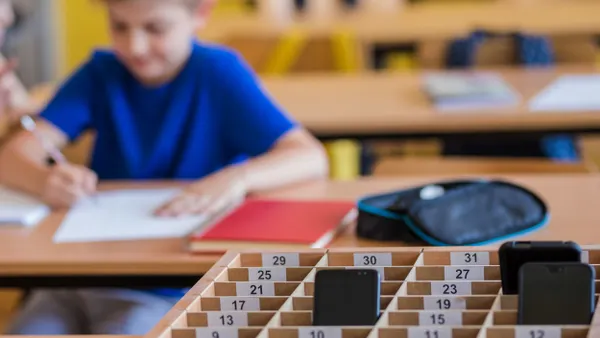Dive Brief:
- The International Society for Technology in Education (ISTE) and Code.org are partnering on a professional development initiative for educators who want to teach computer science alongside an update to the ISTE Standards for Computer Science Educators.
- Code.org will also work with ISTE on the standards refresh, which is expected to give educators and computer science thought leaders alike an opportunity to weigh in on setting a standard vision for "the knowledge, skills and dispositions educators need to teach computer science to all students." Other organizations involved include CSforALL, the Computer Science Teachers Association, and the National Math and Science Initiative.
- Educators will have opportunities to provide feedback throughout the ISTE computer science standards refresh via participation in events, surveys and a digital storytelling initiative, with the release of the new standards expected this fall.
Dive Insight:
This announcement comes amid increased pushes to expand computer science via policy decisions in 40 states, with governors proposing $37.5 million in support for computer science education in the past year and over a dozen announcing such initiatives in their "State of the State" addresses.
Interest in the field and the demand for skilled workers in STEM fields has grown as many traditional blue-collar jobs continue to be disrupted by automation and artificial intelligence. Coding, for instance, has been eyed as one potential future field to replace lost jobs in sectors like manufacturing, warehouse and retail. More positions are available than there are people to fill them, and with the growing acceptance that not everyone is meant to go to college and that pursuing career-and-technical education is just as respectable, K-12 can play a significant role.
Among key challenges: Getting students — particularly females and students of color — interested. Educators must figure out how to upend stereotypes like that of the bespectacled and socially awkward Poindexter, in addition to demystifying the notion of math as a difficult and intimidating subject that some students are born naturally inclined to succeed at while others are not.













